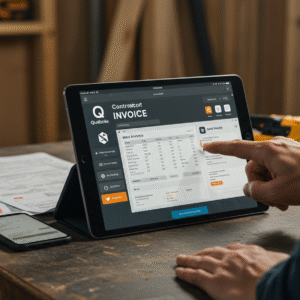This article may contain references to products or services from one or more of our advertisers or partners. We may receive compensation when you click on links to those products or services. Nonetheless, our opinions are our own.
The information presented in this article is accurate to the best of our knowledge at the time of publication. However, information is subject to change, and no guarantees are made about the continued accuracy or completeness of this content after its publication date.

Updated by Albert Fang
Business credit represents the financial standing of a company in the eyes of lenders, vendors, and partners. It is one of the most important factors that influence access to financing, supplier agreements, and overall business credibility. A strong credit profile signals reliability, which can lead to better loan terms, stronger vendor relationships, and greater opportunities for growth.
Building and maintaining business credit requires consistency and discipline. A score is shaped by multiple factors such as payment history, utilization of available credit, account age, diversity of credit lines, and recent activity. Understanding these elements allows a company to strengthen its financial position and create lasting partnerships with lenders and suppliers.
Selecting the Proper Business Structure and Financial Foundation
The legal structure of a company affects how credit bureaus and institutions assess risk. Establishing a formal entity also separates personal and business liability, which helps create an independent credit identity.
Common business entity types
| Business Type | Liability Coverage | Administrative Complexity |
|---|---|---|
| Sole Proprietorship | None | Low |
| Limited Liability Co. | Yes | Moderate |
| Corporation | Yes | High |
Once a structure is chosen, companies should:
- Obtain an Employer Identification Number from the IRS
- Register the business with the appropriate state agency
- Open a dedicated business bank account
These steps support credit separation and improve the company’s profile with lenders and vendors.
Establishing Vendor Relationships That Report Credit Activity
Relationships with vendors and suppliers provide more than operational value. They help build trade credit. Not all suppliers report to business credit bureaus, so choosing partners who do is an important step.
To cultivate effective vendor credit:
- Engage partners that report payment history to agencies like Dun & Bradstreet or Experian Business
- Ensure that accounts are paid consistently on or before due dates
- Request trade references to demonstrate reliability
- Participate in business networks or trade associations to discover credit-active suppliers
| Vendor | Credit Limit | Terms | Contact |
|---|---|---|---|
| ACME Supplies | $5,000 | Net 30 | Jane Doe |
| Tech Innovations | $10,000 | Net 60 | John Smith |
These relationships can help a business establish a reputable and visible financial profile.
Voted "Best Overall Budgeting App" by Forbes and WSJ
Monarch Money helps you budget, track spending, set goals, and plan your financial future—all in one app.
Get 50% OFF your first year with code MONARCHVIP
Monitoring Business Credit with Consistency
Monitoring credit reports protects the business from misreporting, identity fraud, or data errors that could impact financing. Each bureau, including Dun & Bradstreet, Experian Business, and Equifax Business, may carry different information, so regular checks are advised.
Best practices for monitoring
- Review reports from each bureau at least once per year
- Investigate discrepancies promptly through the bureau’s dispute process
- Use paid or subscription services that offer real-time alerts on significant changes
- Track important metrics such as payment history and utilization rates
| Credit Factor | Influence on Score |
|---|---|
| Payment History | Most heavily weighted, late payments hurt |
| Credit Utilization Ratio | Staying under 30 percent usage is ideal |
| Length of Credit History | Longer-established accounts rate higher |
Consistent monitoring allows a business to respond quickly and maintain a positive financial reputation.
Managing Finances with Strategic Intent
Credit is not simply built, it must be sustained. Financial stewardship, especially regarding credit usage, distinguishes businesses with strong and lasting credit.
Sound practices include:
- Making timely payments on all accounts to reinforce credibility
- Using credit to bridge cash flow gaps, not for routine operational costs
- Keeping business and personal expenses completely separate
Budgeting, forecasting, and selective borrowing help ensure that credit remains a resource rather than a burden.
Using Credit Responsibly to Foster Business Expansion
As a business grows, credit becomes a tool for expansion. A strong credit profile can open doors to lower-interest funding and better negotiating positions with suppliers.
Ways to use credit strategically
- Extend supplier terms to optimize cash flow during busy or seasonal periods
- Fund capital purchases such as machinery, inventory, or upgrades
- Obtain lines of credit for working capital, leaving other funding methods available for long-term investments
| Financing Option | Impact on Credit Profile | Ideal Purpose |
|---|---|---|
| Business Credit Card | Builds credit history | Recurring, smaller expenses |
| Equipment Financing | Helps with credit use | Machinery and hard assets |
| Business Term Loan | Enhances credit diversity | Facility upgrades or staffing |
When managed responsibly, credit supports scalable growth and future investment opportunities. Whether you’re applying directly to a large federal agency, going through an employment agency, or interviewing with a startup, the checks are getting more detailed.
Frequently Asked Questions Regarding Business Credit
What does business credit represent?
It reflects a company’s track record in managing borrowed funds. A strong file increases financing options, improves insurance premiums, and reduces the need for personal guarantees.
How can a business become credit-active?
Companies must register with credit bureaus, maintain separate banking, and work with vendors or lenders that report credit activity.
What is a D-U-N-S Number?
It is a nine-digit identifier issued by Dun & Bradstreet. It allows a business to establish its file and track credit activity.
How do supplier relationships affect business credit?
Reliable relationships with reporting vendors strengthen a credit file through on-time payments and trade references.
Why monitor credit reports regularly?
Frequent reviews help identify inaccurate data or suspicious activity before it affects financing decisions or vendor relationships.
Conclusion
Business credit is more than a score, it is a measure of trust and financial responsibility that impacts nearly every aspect of operations. From obtaining financing to negotiating supplier agreements, it plays a central role in long-term stability. A strong credit profile is built through timely payments, careful management of accounts, and consistent reporting across vendors and lenders.
For companies aiming to grow, knowing how to build business credit and improve a business credit score can unlock access to better financing options, stronger partnerships, and long-term growth potential. By focusing on vendor relationships, monitoring reports, and using credit responsibly, a business can position itself as a trusted partner in the marketplace and strengthen its foundation for future success.

Reviewed and edited by Albert Fang.
See a typo or want to suggest an edit/revision to the content? Use the contact us form to provide feedback.
At FangWallet, we value editorial integrity and open collaboration in curating quality content for readers to enjoy. Much appreciated for the assist.
Did you like our article and find it insightful? We encourage sharing the article link with family and friends to benefit as well - better yet, sharing on social media. Thank you for the support! 🍉
Article Title: Proven Ways to Build Business Credit and Grow Your Company in 2025
https://fangwallet.com/2025/11/05/proven-ways-to-build-business-credit-and-grow-your-company-in-2025/The FangWallet Promise
FangWallet is an editorially independent resource - founded on breaking down challenging financial concepts for anyone to understand since 2014. While we adhere to editorial integrity, note that this post may contain references to products from our partners.
The FangWallet promise is always to have your best interest in mind and be transparent and honest about the financial picture.
Become an Insider

Subscribe to get a free daily budget planner printable to help get your money on track!
Make passive money the right way. No spam.
Editorial Disclaimer: The editorial content on this page is not provided by any of the companies mentioned. The opinions expressed here are the author's alone.
The content of this website is for informational purposes only and does not represent investment advice, or an offer or solicitation to buy or sell any security, investment, or product. Investors are encouraged to do their own due diligence, and, if necessary, consult professional advising before making any investment decisions. Investing involves a high degree of risk, and financial losses may occur including the potential loss of principal.
Source Citation References:
+ Inspo
There are no additional citations or references to note for this article at this time.












































